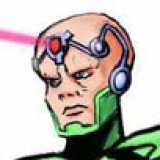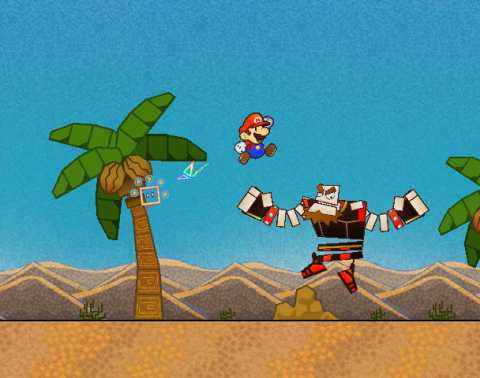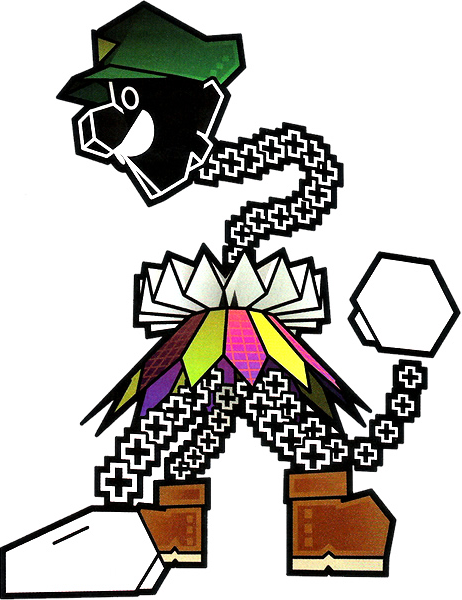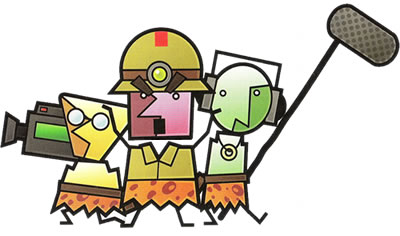How will gaming history look upon mobile games?
By BisonHero 1 Comments
Games: Everyone is playing them
The ESA estimates 67% of American adults play video games, a number buoyed by the ubiquity of smart phones and the rise of free to play games (in the survey, 57% of respondents cited smartphones as a device they play on, higher than the percentage who gamed on console or PC). Even if someone just plays a mobile game once every week or two, they're a gamer. The revenue taken in by mobile games is massive, but looking at end of year GotY lists from gaming enthusiast press, the focus is still predominantly on console and PC games.
When I think about the efforts to start cataloguing gaming history and the games/game creators that really moved a generation, many of the museums, books, coffee table books, documentaries, etc., are understandably more focused on capturing the early days of arcade/console/PC games, either because we have a little more perspective on those times, or because there was more of a collective zeitgeist when there was only a handful of major players to focus on.
As the 2000s and 2010s fall behind us, will gaming enthusiast writers and curators ever mythologise and archive the free browser games and mobile games the same way they've started to do with the classic arcade and console and PC games of the 80s and 90s? Will something like Dean Takahashi's Zynga: From Outcast to $9-Billion Social-Game Powerhouse be compelling to people in the same way that David Kushner's Masters of Doom is to a slightly older crowd?
The gacha style of game
Shifting gears, let's look at a kind of mobile game that is proving to be very successful as of late. Gacha games, especially popular within Asia, are noted for an emphasis on random pulls (essentially loot boxes, slot machines, etc.) to get higher rarity characters/units. How will gamers and historians reminisce about gacha games after their time in the limelight is over? Will the greats of the genre be remembered as a clever marriage of gameplay and art and sweet, sweet 5-star pulls, or will many be considered ephemeral digital casinos that rapidly fade from memory once their popularity wanes and the servers are shut down and the dopamine hits completely vanish?
I've been thinking on those questions specifically since reading an article by Kotaku's Sisi Jiang:
https://kotaku.com/casual-game-players-hardcore-fans-genshin-impact-arknig-1847895923
For context, they are pretty much the designated writer who covers Genshin Impact for Kotaku, also covering other Asia-developed games. But seriously, they write many, many Genshin Impact articles.
In the article I've linked, Jiang goes to great lengths to consider the alternative type of gaming that Genshin Impact and Arknights players get up to, as compared to mainstream gamers playing on console and PC who (outside of Asia) often look down on mobile gaming. These mobile players Jiang speaks of spend a lot of time gaming, but often it's on a small number of mobile games, and they often don't play console or PC games at all. Mobile games are considered "casual", but these players dedicate time and thought to the games in a "hardcore" way. Are they not also gamers?
It's an interesting premise, but I feel like Jiang completely blows it on the execution. Some small mention is given to the gameplay tactics needed in Genshin or Arknights. An inordinate amount of time in the article is Jiang explaining the complexity of material farming needed for Genshin and Arknights, admiring the players for their dedication to strategically optimising how they farm these resources, or using their knowledge of the systems to bias their gacha pulls to be somewhat more effective. No consideration is given to the fact that the labyrinthine number of different currencies in gacha games, and having busywork farming to do each day, and ways to occasionally bias the gacha to be slightly better, is as much a psychological trick in the mobile game playbook as showing a bunch of currency and denoting one as "best value!" The games are designed to produce players like this: playing the game daily, having to think about how best to farm, and you're in the game so much that maybe you occasionally spend a little (or a lot) to speed up your growth.
I have played some Arknights, and there's something to be said about its weird brand of tower defense gameplay and bizarro anime storytelling and slick menu/UI design, but those are the aspects that I think are worthy of praise. I'm not going to pat the devs on the back for 99% of my gameplay time being grinding out upgrade materials. Nor am I going to pat myself on the back for understanding how to more efficiently optimise said grinding. I accept it's the cost of doing business with a mobile game, but "quantity of time and thought towards grind optimisation" is not the thing that legitimises these mobile game players as Gamers, and it's just a really bizarre thing to even bring up. Jiang missing the forest for the trees did really remind me of the central conflict I have about the legacy of mobile games: "the business" side of things wants to keep you playing, and does so in a transparently manipulative way, and do enough players/commentators care that it will affect the standing of these games in the history of gaming?
Will history be kind to free-to-play mobile?
So let's get to my central question. Mobile games: how will we look back on them? "The business" tends to intrude upon creative works in proportion to how high the production costs are and how high the profit expectations are, and we see this in games in a myriad different ways. Arcade games of yore simply tuned the game to be so hard that your continues would run out much sooner than your attention span for the game did, and the arcade game had to be quite fun to facilitate this relationship. By comparison, modern free-to-play mobile games are on a whole different level of "the business" pervading every level of the game's creative process, eliciting compulsive behaviours ranging from mindless daily grinding to random reward mechanisms. Gacha games strike me as sitting on the extreme end of that spectrum, combining all of the mobile game player compulsion/retention tricks with the slots-like dopamine hit of loot boxes/gacha pulls.
As time passes, will gaming enthusiasts and historians praise free-to-play mobile as its own distinct category of game design worthy of recognition, or will mobile exist apart from the sort of consideration given to console and PC games?




Log in to comment